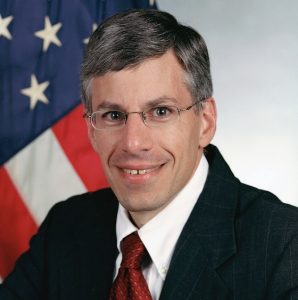Quantum computers promise to crack some of the most complex problems in encryption, artificial intelligence, medical research, and more. On June 29, 2021, the University of Science and Technology of China in Hefei unveiled “Zuchongzhi,” the fastest quantum computer in the world, which at fifty-six qubits is just a nose ahead of Google’s Sycamore quantum computer. But are we calling the race too soon? Will the United States and its allies catch up? On this episode of Fast Thinking, we turn to David Bray, director of the Atlantic Council’s GeoTech Center, and his GeoTech colleague William Jeffrey, the CEO of SRI International, which manages the Quantum Economic Development Consortium. They break down what the announcement means for the quantum-computing space and geopolitics more broadly.
Image: A handout picture from October 2019 shows Sundar Pichai and Daniel Sank (R) with one of Google's Quantum Computers in the Santa Barbara lab, California, U.S. Picture taken in October 2019. Google/Handout via REUTERS THIS IMAGE HAS BEEN SUPPLIED BY A THIRD PARTY.

